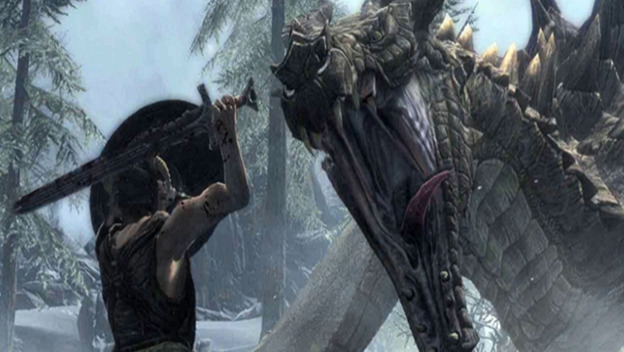Sony has already announced some impressive titles for the PS4, most of which will be available day one. Although Microsoft’s lineup isn’t quite so concrete, nor is the Wii U’s current library as impressive, we’ve now gotten a sizeable glimpse at what titles will be leading the charge at the start of the next console generation. Big names like Infamous: Second Son, Killzone: Shadowfall, Destiny, and Watch Dogs immediately come to mind, but they’re certainly not all that’s being paraded in front of us. However, among the horde of promising action titles and shooter candy, there is a distinct absence of one genre in particular: RPGs.
Of course, the question “What is an RPG?” is a bit subjective to say the least. Watch Dogs will likely have RPG elements to it, and Bungie’s Destiny is in fact an MMORPG-lite based in third-person shooter gameplay. However, die-hard fans and purists will notice a total lack of what now appear to be niche classics: JRPGs and SRPGs.
Although shooters and action titles have come to rule the gaming industry, this is still fairly surprising. After all, we’ll be seeing several RPG releases throughout 2013, many of them in the genre’s most popular franchises. Tales of Xillia is due out on the PlayStation 3; Shin Megami Tensei IV will be coming to the 3DS, and Dragon’s Crown will hit the Vita with cross-platform support soon enough. That’s to say nothing of Disgaea D2: A Brighter Darkness, Time and Eternity, or The Guided Fate Paradox—three JRPGs set to hit the PS3 in the coming months (courtesy of NIS, and for $49.99 at that).
Despite the colorful array of party systems and turn-based combat that are slated to release this year, it seems that the next hardware wave won’t be having any of it. Even the comparably quirky Wii U has little more than Monster Hunter 3: Ultimate to offer—an update of an already rereleased Wii title. It goes without saying that the action-crazed audience of the PS3 and Xbox 360 will demand the same sort of titles from their next-system purchase, and next-generation announcements already reflect the demographics’ favoritism for adrenaline-fueled gameplay. Granted, it is far too soon to make any judgments about the software of the next generation, but the complete absence of RPGs from current launch lineups is a bit discouraging, to say the least.
There’s more at play in the vanishing of RPGs than player preference, though. The success of other genres reflects the nature of today’s gaming market on the development side of things as well.
Think about what initially made RPGs popular, and what helped distinguish the genre. The key allures of RPGs are interaction with a game’s characters, the play style of involving multiple players beyond yourself into your strategies, and the ability to customize both your character and the world. That’s an insultingly brief list of descriptors for what is arguably the most influential genre in gaming history, but you get the point: Gamers like options, and RPGs have plenty of them. However, as recent releases have shown, genres are no longer so black and white, and those characteristics have become more common.
Look at SuckerPunch’s Infamous series. It looks and plays like nothing more than a super-powered action title, but it successfully incorporates a social element into its plotline in the form of aiding the downtrodden citizens within the city. In more recent releases, how about BioShock Infinite? It’s little more than a first-person shooter with some flashy abilities at first glance, but you’ll soon find that the game is paired with moral commentary and memorable characters (which are synonymous with the BioShock name).
Clearly, RPGs don’t have exclusive access to style extremities, nor did they ever. They are, however, often considered the most viable medium through which to convey them. But as the industry has evolved and improved, other genres, even those as linearly focused as first-person shooters, have integrated the more artistic and cinematic aspects of gaming just as effectively. As a result, the appeal of RPGs—particularly JRPGs, the most wildly exaggerated of the bunch—has become less relevant. That’s not to say that the average quality of RPGs has declined; other genres and play styles have simply improved.
That the games industry has evolved, making storytelling elements more valued, is obviously beneficial. The shift is in no way news, nor is it surprising; it’s the nature of media. It is also a shift that occurred naturally and has set a trend in the industry. So, what happens when we add the slew of innovations that the next hardware generation will bring into the mix?

From day one, developers have promised to deliver a more social and versatile experience with their next systems. The Wii U has already shown its participation in the campaign, and Sony and Microsoft are equally emphatic. Combined with the increased hybridization of genre elements, the coming gaming generation is poised to involve players like never before. Consequently, gamers may turn elsewhere for experiences that were previously offered more frequently by RPGs. And that can only spell scarcity for the already declining genre.
Help me out on this one, readers. Clearly, RPGs won’t simply vanish, but they’ve definitely become less prevalent in today’s industry. Do you see another reason for their decline?
